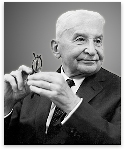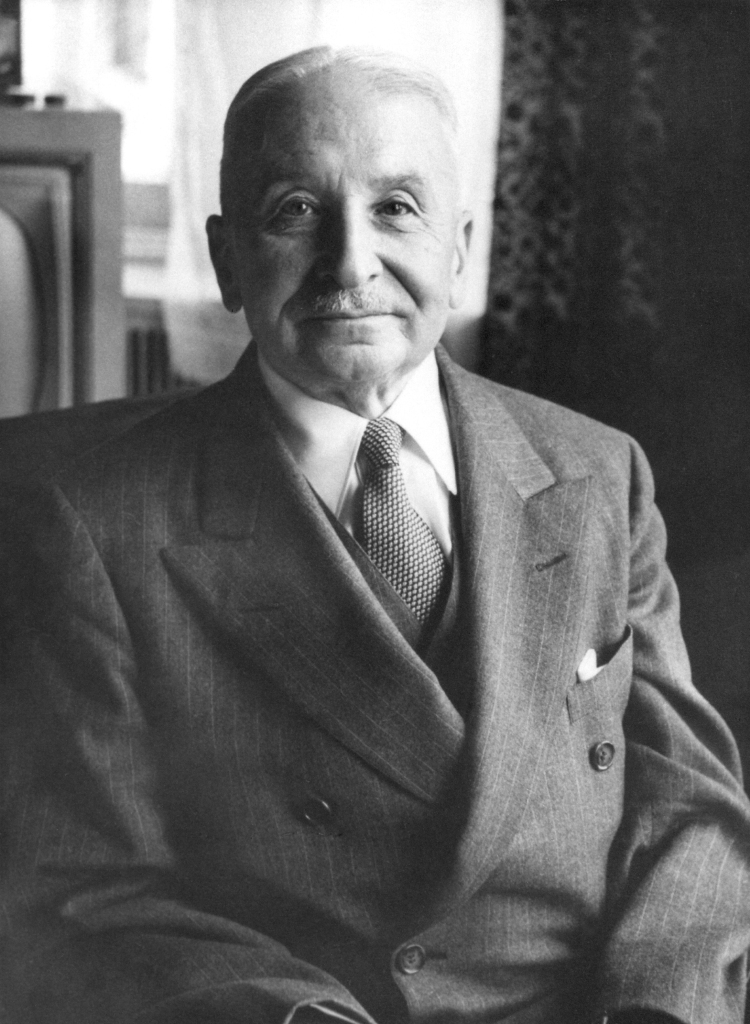
Five quotations from Ludwig von Mises from five works on his opposition to anarchism:
“Society cannot do without a social apparatus of coercion and compulsion, i.e., without state and government.” The Anti-Capitalist Mentality, p. 90.
“There are people who call government an evil, although a necessary evil. However, what is needed in order to attain a definite end must not be called an evil … . Government may even be called the most beneficial of all earthly institutions as without it no peaceful human cooperation, no civilization and no moral life would be possible.” Economic Freedom and Interventionism, p. 57.
“Anarchism misunderstands the real nature of man.” Liberalism, pp. 36-7.
“Liberalism differs radically from anarchism. It has nothing in common with the absurd illusions of the anarchists … . Liberalism is not so foolish as to aim at the abolition of the state.” Omnipotent Government, p. 48.
Anarchists are “shallow-minded, dull, [and suffer from] illusions and self-deception.” The Ultimate Foundation of Economic Science, pp. 98-9.
Also important is Mises’s insistence that we keep the government tightly constrained, as metaphorically it is acid:
I am not an ‘enemy of the state’ any more than I can be called an enemy of sulphuric acid because I am of the opinion that, useful though it may be for many purposes, it is not suitable either for drinking or for washing one’s hands. (Liberalism, p. 38)
Related: Rand’s and Mises’s liberal political philosophies overlap significantly, Mises coming from an economic philosophy starting point and Rand from a moral philosophy starting point.

Great quotes! Very useful. Thanks for finding and posting them. 🙂
Mises’ wrote in the context of anti-capitalist false anarchists. He believed in the right of self determination and thence the right to secede. Rothbard elaborates that idea into anarcho-capitalism. Rand, Mises, Hayek, Rothbard – all of them – wrote before the revelations of E.O. Wilson and the discoveries of his progeny. The spontaneous order of nature and the evolved cooperative capacities of self-serving people will always be discounted by the minions of the state.
Please delete that apostrophe on Mises’
Thanks
http://www.thepunctuationguide.com/apostrophe.html
He also has arguments against anarchism in Bureaucracy and in Human Action.
“The anarchists overlook the undeniable fact that some people are either too narrow-minded or too weak to adjust themselves spontaneously to the conditions of social life. Even if we admit that every sane adult is endowed with the faculty of realizing the good of social cooperation and of acting accordingly, there still remains the problem of the infants, the aged, and the insane. We may agree that he who acts antisocially should be considered mentally sick and in need of care. But as long as not all are cured, and as long as there are infants and the senile, some provision must be taken lest they jeopardize society. An anarchistic society would be exposed to the mercy of every individual.”
(Human Action, p. 149)
“Nobody denies that the principles according to which a police department is operated differ essentially and radically from the principles applied in the conduct of a profit-seeking enterprise.”
(Bureaucracy, p. 19)
“The main difference between a policeman and a kidnapper and between a tax collector and a robber is that the policeman and the tax collector obey and enforce the law, while the kidnapper and robber violate it. Remove the law, and society will be destroyed by anarchy. ”
(Bureaucracy, p. 76)
I don’t think that’s a valid.
Mises’ criticisms of anarchism are clearly a statement of the fundamental necessity of state. It’s clearly not just because “anarchists back then weren’t real anarchists”.
Also, I can’t comment on the extent to which Mises would’ve been aware of them or their prominence at the time. But it’s not as if individualistic anarchists in the likes of Tucker and Spooner didn’t already exist.
AEN: Was Mises better than the classical liberals on the question of the state?
HOPPE: Mises thought it was necessary to have an institution that suppresses those people who cannot behave appropriately in society, people who are a danger because they steal and murder. He calls this institution government.
But he has a unique idea of how government should work. To check its power, every group and every individual, if possible, must have the right to secede from the territory of the state. He called this the right of self determination, not of nations as the League of Nations said, but of villages, districts, and groups of any size. In Liberalism and Nation, State, and Economy, he elevates secession to a central principle of classical liberalism. If it were possible to grant this right of self-determination to every individual person, he says, it would have to be done. Thus the democratic state becomes, for Mises, a voluntary organization.
AEN: Yet you have been a strong critic of democracy.
HOPPE: Yes, as that term is usually understood. But under Mises’s unique definition of democracy, the term means self rule or self government in its most literal sense. All organizations in society, including government, should be the result of voluntary interactions.
In a sense you can say that Mises was a near anarchist. If he stopped short of affirming the right of individual secession, it was only because of what he regarded as technical grounds. In modern democracy, we exalt the method of majority rule as the means of electing the rulers of a compulsory monopoly of taxation.
Mises frequently made an analogy between voting and the marketplace. But he was quite aware that voting in the marketplace means voting with your own property. The weight of your vote is in accord with your value productivity. In the political arena, you do not vote with your property; you vote concerning the property of everyone, including your own. People do not have votes according to their value productivity.
AEN: Yet Mises attacks anarchism in no uncertain terms.
HOPPE: His targets here are left-utopians. He attacks their theory that man is good enough not to need an organized defense against the enemies of civilization. But this is not what the private-property anarchist believes. Of course, murderers and thieves exist. There needs to be an institution that keeps these people at bay. Mises calls this institution government, while people who want no state at all point out that all essential defensive services can be better performed by firms in the market. We can call these firms government if we want to.
I really think Hoppe is twisting what Mises actually said. I don’t see any reason to think Mises actually thought a purely voluntary state was possible. Unless I’m severely missing something.
I don’t think the “But Mises was talking about leftists…” line works. He seemed to criticise statelessness on principle.